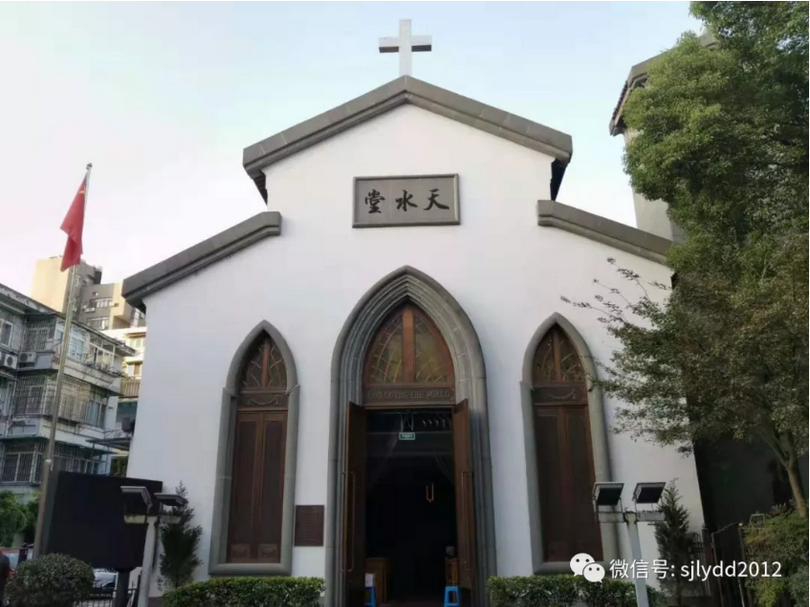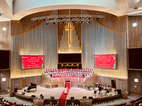In the beautiful Xiacheng District of Hangzhou, there is a 300-meter path named "Jesus Lane". Why is a Chinese street named after the founder of the Christian faith, and what is the story behind this?
In the Song Dynasty, there was a pharmacy located in the lane. In 1147, the Vice Prime Minister Xue Ang gave a garden to the Buda Hui Guan to build a temple, called "Si Zensheng—Four Choices of Victory", which was transformed into a Buddhist temple. It was called Xingfu Temple Lane. In the modern era, many missionaries came to China to spread the gospel. In 1860, American missionaries M. H. Houston and Benjamin Helm came to Hangzhou to preach. Hangzhou Vive Governor Lu allocated more than ten acres of vacant land along the lane for them, and they built five or six buildings. There were chapels, study rooms and dormitories for men and women. It was given the name "Tianshui Church", but was commonly known as the "Jesus Church". The lane near the church was renamed "Jesus Lane". In addition to the church, the Presbyterian Church in the United States also opened the Holy House of Mercy, a hospital, a girls’ school and a nursery school.
What made Tianshui Church and Jesus Lane well-known is closely related to the Chinese love of an American missionary. In 1868, an American named John Stuart was sent to Hangzhou by the Presbyterian Church. In 1873, he moved into the Jesus Lane and pastored the Tianshui Church. Stuart lived in Hangzhou for 45 years and dedicated his life to this ancient land.
On June 24, 1876, Stuart’s eldest son was born in Jesus Lane. This son would have a huge impact on the history of the Chinese church, Chinese education, and even the history of modern China. He was the famous educator and diplomat John Leighton Stuart. Leighton Stuart spent his childhood in the lane. He wore Chinese clothes, played with Chinese children living nearby, and enjoyed the beautiful scenery of Hangzhou under the care of a Chinese babysitter. Stuart found himself assimilated into Hangzhou culture. The first language he mastered was not English, but the Hangzhou dialect. Even when he became the principal of China's top institutions, his Mandarin retained a strong Hangzhou accent. When Stuart returned to the United States to study at the age of 11, he found it difficult to adapt and was regarded by other students as "alien".
Among the missionary groups in China, perhaps no one has the high status or popularity of Stuart. Because of an article entitled "Farewell, Stuart" and the attention from major media in recent years, Stuart became a household name. His most important achievement in China was the founding of Yanjing University, a leader among Chinese church schools and representing the highest level of Christian education. Yanjing University graduates used their abilities and education to benefit Chinese society and promote China's development. In addition to running a school, Stuart also had a love for China. Despite the turbulent times, he remained firm in his commitment to the Chinese people and dedicated his life to China. As the historian Lin Mengxi said: "There has probably not been an American in the 20th century, like Dr. Stuart, who has been involved in China's politics, culture, and education for a long time and has had an inestimable impact."
Stuart later became involved in politics, which led to his being criticized in the United States in the 1950s. After returning to the United States, he was ignored because some of his stances were inconsistent with American politicians of that time, so he found himself alone in his views. However, times have changed. The Chinese people's evaluation of Stuart has become quite positive. Although the Church of Jesus Lane was renamed Youth Lane in 1966, the original name was restored in 1981 to commemorate the Stuart family.
- Translated by Kevin Feng












